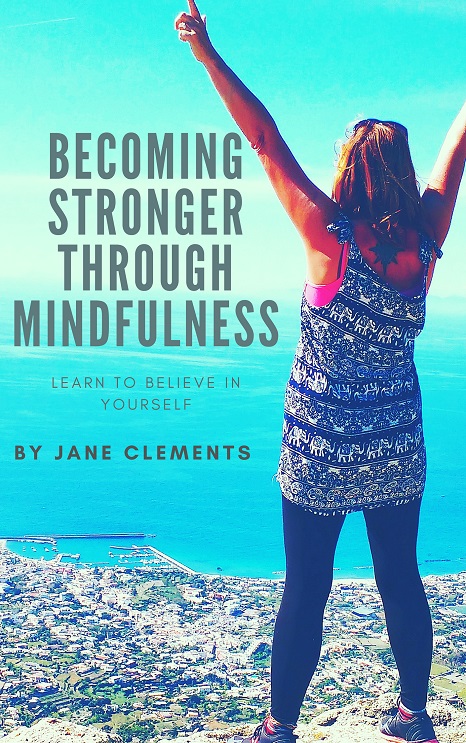I’m too fat, too thin, I’m ugly, uninteresting, too quiet, too loud, useless, I can’t cook, can’t dance, I’m stupid, too short, too tall, the wrong religion, I don’t fit in, my skin’s the wrong colour, people don’t like me, my work colleagues avoid me……. the list can go on and on and on and negative comments like these whirl around in our heads and only serve to drag us down.
I introduce negative thoughts and sabotaging beliefs with the above words in the opening paragraph of the second chapter of my book ‘Becoming Stronger through Mindfulness’.
The way that we interpret our world begins to form as soon as we’re born. We adopt (or reject) the values and beliefs of those closest to us in our home and family and then as we grow, we learn from teachers, class mates, work colleagues and friends.
We learn how to behave and how to treat other people but somewhere along the line things can sometimes go a bit wobbly if we also start to believe the untruths. Another type of problem occurs when something is true but when our confidence has been undermined to such an extent that we adjust our behaviour due to what we have been told.
For a sister article and some relatable examples click on this link. Perhaps you can identify with a negative belief of your own? Have you worked out when it was formed and why? Maybe you need some help to understand how and why it affects you or maybe you’re wondering how and why you behave in a certain way in certain circumstances.

There are two main ways of dealing with problems caused by negative beliefs.
We can go back and identify the root cause of unhelpful beliefs, interrogate them, understand how and why they have affected us and then put processes into place to help us deal with them, OR we can simply jump straight into dealing with the emotional responses that have been triggered.
On top of these two methods there are many different coping strategies that we can employ that will help us to become better at self-belief. Here are three of them.
Challenging the untruths.
1. Once you’ve identified an unhelpful emotion the first step is to go back in time (a coaching session can help with this) and try to establish what circumstances caused these beliefs to take root. When we go through this process we often discover that what we had taken on board to be a fact about ourselves often simply isn’t true.
With guidance and gentle questioning you can then challenge the ‘truth’ as you have become to understand it. Using positive examples you change the way that you think and ultimately how you emotionally respond.
2. Another approach is to understand the motives and behaviours of whomever it was who planted the negative belief with you in the first place. In the second example (click here), it’s often bullies who begin this process with us; and the majority of bullies have low self esteem. They pick on others to make themselves feel bigger, stronger and more important but with the right tools you can put their words into context and change how you perceive yourself. It’s important to note however, that the origin of negative beliefs can come just as easily from a well meaning comment – it’s how we internalise it in conjunction with other life events that shape how we interpret it.
3. The final approach that I want to discuss here is when something is true (for example I can’t sing which is certainly true), but it affects how we behave. By believing in ourselves the fact that we can’t string a set of notes together becomes irrelevant if we enjoy singing. Other people might find themselves wincing but does that really matter? This is about becoming confident in your own body, being positive, enthusiastic and joyful. It’s about living in the moment and really experiencing life.
This article touches upon just a few of the ways that negative beliefs can be formed; and how they might go on to affect us. There are lots of ways that we can replace sabotaging thoughts with healthy beliefs. I use a combination of Mindfulness, CBT (Cognitive Behavioural Therapy) and NLP (Neuro Linguistic Programming) as well as a healthy dose of social interactions; otherwise known as evenings out with good friends to keep myself on track and in my work as a coach.
Have you identified any negative beliefs from your past and what effects have they had on you? Would any of the above methods help you to put some balance and perspective back into your life?
Drop me a line and let me know your story.
